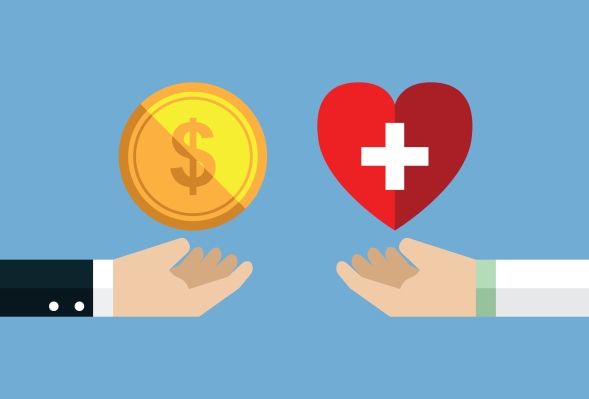In recent years, “femtech” has attracted increasing attention and venture funding, with dozens of startups to springing into existence, from digital health apps to, more newly, regenerative medicine companies. Most of those deals tie to infertility, and it’s easy to appreciate why. Among U.S. women ages 15 to 49 years with no prior births, 26% have difficulty getting pregnant or carrying a pregnancy to term, says the CDC.
Still, founders and investors are slowly catching on to an even bigger opportunity in menopause, which impacts half the population and is becoming front of mind as the world’s demographics skew older, owing to, among other things, a shift toward smaller families that began in the late 1960s and an increase in life expectancy. (Between 1980 and 2016, average life expectancy at birth increased from 73.7 to 78.6 years).
The numbers suggest opportunity. Indeed, according to recent United Nations data, the number of older people in the total population is increasing rapidly. In 2020, there were 727 million persons aged 65 years or over in the world; by 2050, that number is expected to double to 1.5 billion people. It’s why we’re beginning to see a greater range of companies catering to an older demographic, from reverse-mortgage type lending companies to senior home care services startups.
Yet menopause — which is clearly an enormous market — continues to attract a trickling of investment dollars. According to Crunchbase data, only a dozen startups that address menopause have attracted funding over the last 12 months.
The most recent of these is Vira Health, which offers personalized digital therapeutics for women going through menopause and just this week announced a second round of funding ($12 million). The deal follows a $10 million round announced last month for HerMD, an outfit aiming to open offline centers focused on women’s sexual health and menopause (it operates two right now). Gameto, a company that aims to delay — even eradicate — menopause through regenerative medicine, meanwhile announced $20 million in funding in January.
Compared to the dollars being invested elsewhere, often in me-too companies, it’s chump change. It’s even more shocking given that women who are pre-menopausal, menopausal, or post-menopausal tend to be at the height of their spending power.
In fairness, there are plenty of reasons investors might be hesitant, including that many are male and will themselves never experience menopause. Indeed, most of the companies funded to date have received checks from female VCs.
There haven’t been any “breakout” consumer brands catering to women who experience menopause.
While some of the most costly investments — the development of hormone replacement therapies — have proven highly remunerative for pharmaceutical companies, they’ve also been plagued with safety concerns, and the path to rolling out new drugs is littered with failure. (Astellas, a Japan-based multinational pharma company, is perhaps the latest to swing and miss in a phase 3 study in Asia.)
Still, investors looking for upside might take a harder look at menopause as a market. Advances in recent years in biology, computing, automation and artificial intelligence are drawing growing interest in menopause from a wide range of stakeholders, including those focusing on regenerative medicine, which is the process of creating living, functional tissues to repair or replace tissue or organ function that is lost.
Gameto, for example, which is backed by Future Ventures, hopes to use cell therapies to extend the time before ovaries stop functioning as an organ in order to delay some of the health conditions associated with menopause, including higher blood pressure, heart disease and osteoporosis. (Its CEO believes women deserve a higher quality of life for longer, given they are living longer lives.)
There’s growing evidence to suggest there could be more opportunities for treatments. For instance, researchers are only now beginning to realize the impact of menopause on women’s brains. “Many of the symptoms of menopause cannot possibly be directly produced by the ovaries, if you think about the hot flashes, the night sweats, the anxiety, the depression, the insomnia, the brain fog,” Lisa Mosconi, an associate professor of neurology at Weill Cornell Medicine and director of its Women’s Brain Initiative, told the New York Times in July. “Those are brain symptoms, and we should look at the brain as something that is impacted by menopause at least as much as your ovaries are.”
As for the lack of breakout consumer brands catering to women who experience menopause — including brands that relieve signs and symptoms and help manage chronic conditions — they could be around the corner.
One thing seems certain. It’s an underserved market that’s fast growing and target rich. Add in the chance to get behind category-defining brands, and it’s fair to wonder: Why aren’t VCs — and founders, for that matter — more focused on menopause?
Credit: Source link





















